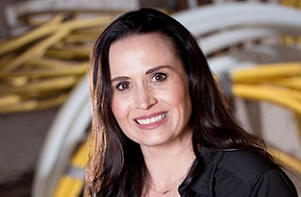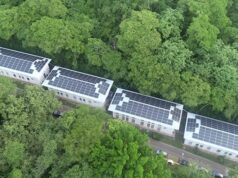
Monsoon season excites many residents and tourists during the summer, but hotel operators and building owners must recognize that monsoon season can pose serious threats to people and property. This year, unpredictable and intense monsoons have been sweeping the southwestern United States, increasing the amount of dust and debris particles in the air which can decrease the performance and efficiency of air conditioning units. Not only does this reduce the level of comfort in the building, but it also impacts the quality of the indoor air your employees and guests breathe.
It’s no surprise your building’s commercial HVAC unit is vastly different than the unit at your residence and that it will require different maintenance and preventative measures. For example, it can be recommended to residential customers that they can shut off their air conditioner during a monsoon to prevent it from pulling in all that dirt into their home. But this strategy is not a feasible option for a hotel or office building, which must be constantly cooling their larger spaces to keep guests and employees comfortable at all times during the summer.
Along with the hot summer weather, monsoons also bring in humidity, severe thunderstorms, heavy rain, lighting, dust storms, and strong winds in a matter of minutes. To ensure the commercial HVAC unit performs optimally all monsoon season long while also maintaining a healthy indoor air quality, hotel operators and facilities managers should consider the different ways monsoon weather can impact their commercial HVAC unit:
Dust Storms Lead to Dirty Air Filters
Check the air filters after every big storm and replace them if they are dirty to reduce strain on the HVAC system. Waiting too long or avoiding changing the air filter altogether can mean big maintenance problems and increased utility bills. It’s also important to know the MERV (minimum efficiency reporting value) of the air filter as well as the proper size for your unit. If the efficiency is too low, you could be leaving dust, dirt, and particles in the air.
Air filters are designed to catch dust, dirt, and particles but they aren’t designed to clean the air. You can also consider an air filtration system to address concerns about air quality. Adding an air filtration system to your HVAC system adds incredible value to your hotel as your guests and employees can have extra peace of mind knowing they are breathing in clean air even as a dust storm rages on outside.
Humidity Creates More Moisture to Drain
Commercial systems generally have several drip pans and pipes installed to ensure proper drainage. These drainage setups help lower the risk of having the system overflow from too much condensation or moisture. When the humidity goes up following a storm, the system works to absorb much of the moisture from the air. But if you haven’t had your unit maintained or cleaned, your drain lines could be blocked by dirt, debris, or mold. This can cause the water to be backed up until it begins to leak and lead to larger problems. Therefore it is important to ensure regular maintenance on any HVAC unit is scheduled ahead of monsoon season. During or after a monsoon storm, you can monitor your units to ensure that the extra water is being collected and redistributed properly.
Lightning Storms Result in Power Outages
A power outage can be a hotel’s worst-case scenario. Given the frequent lightning storms during monsoon season, it is beneficial to install a surge protector to prevent power surges and lightning strikes from tripping your hotel’s circuit breaker and damaging the unit and other electronics within.
Harsh Winds Can Damage Unit
Monsoon winds can reach extreme speeds and are powerful enough to cause objects to fly through the sky. Prior to monsoon season, inspect your roof to make sure the unit is properly secured and stable to withstand the harsh winds. Additionally, clear the HVAC area of any debris or objects such as tree clippings, patio furniture, and umbrellas that can be thrown around in the high winds, which could damage the exterior and coils that surrounds the unit.
When is it Time to Replace?
Monsoon storms can accelerate the wear and tear of your commercial unit due to the frequent and extreme weather conditions. Even after the storms start to slow down and monsoon season comes to an end, it is important to keep an eye out for the warning signs of an aging HVAC unit to know when it is time to upgrade to a new system. Increasing energy bills, frequent maintenance repairs, or strange smells or noises can signal that your commercial unit has reached a point where it is no longer cost-effective to keep up with the repairs. Replacing an old HVAC unit with a new one will not only reduce your overall repair costs, but it can help lower your energy bills as well. Modern systems tend to be more energy-efficient, so it is in your best interest to upgrade your commercial HVAC system when the time comes.
No one can stop a dust storm or heavy rain from rolling in, but you can minimize the damage to your building’s air conditioning unit and protect the health of your employees and guests by taking simple preventative and maintenance measures. Commercial HVAC systems require attention and maintenance, especially after a monsoon storm, to continue running at optimal performance.
Audrey Monell is President of Forrest Anderson Plumbing, Heating and Air Conditioning Inc., which has been providing exceptional service to the Phoenix area since 1961. As a third-generation family business, Forrest Anderson remains committed to its founder’s core beliefs: treat your customers right, treat your employees right, do your best work, and always do the right thing.







